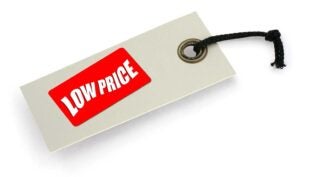The Secrets to Improving Profits in Your Small Business
By: Susan Solovic

It’s about time to rummage through my spice rack and see what I need to throw away and what I need to replace.
I’m sure I’ll find several little jars that have only a small bit of the original herb or spice left. In addition to those, there are probably some very old spices that I bought for one recipe and never used again.
I’ll probably throw out the old and nearly empty bottles. They’re taking up room and if I were to just ignore them, every time I looked at my spice rack I’d get the impression that it was full, when in fact, several of the slots were being occupied by herbs and spices that have lost most of their flavor.
(I don’t want to go all Food Channel on you, but aromatic herbs and spices lose their seasoning power over time; so don’t let yours sit on your shelves indefinitely!)
I’m using this little culinary analogy to illustrate the reasons you should also review your products and services, along with your customer list. They too can go stale, and just like adding a stale herb to your food won’t improve its flavor, stale products, services and customers won’t improve the profits of your small business.
Profitable small businesses
You need to truly understand how to figure out profit margins and the corresponding sales volume throughout your products, services and customers. A profit wheel can help you get a good idea if your margins are healthy. With it, you first dial in your cost and then it tells you what you should be charging for the different margins you would like to achieve. This will help you find the ideal profit margin for your small business.
However, if you want to improve the profits in your small business, you have to really understand your costs and be honest with yourself about them. For example, if you buy something wholesale and resell it, you have costs beyond the mere wholesale price that you pay. Your sales price minus your wholesale cost is your gross profit; but net profit is really what counts in the long run. For example, you move the product around, it takes up space on a shelf, you may package it, you count it at inventory time, your office answers phone calls about it, sometimes it gets returned and more. When you have a product with a poor margin or poor volume, these costs add up and can cause you to lose money on the item, no matter what your wholesale price or gross profit may be.
Small business – high profit secrets
Worse yet, these dogs are taking up time, energy and space that could be devoted to a new, more profitable item – or more of an item that really makes good money for you. (Maybe if you could warehouse more of your most profitable products, you could purchase them at an even lower cost, expand your territory and improve the profits of your small business more effectively.)
Never forget the “lost opportunity” costs.
Let’s turn our critical eye to your customers for a moment. Occasionally, small businesses will have some customers that just aren’t the right fit for their business model. On paper you might be making a small profit off these customers, but when you factor in the time and energy it takes to service them, they may not be worth it.
Again, consider the cost of lost opportunities. If your sales team could be unburdened of these marginal customers, would they be able to spend their time more profitably building up their relationships with your best customers or finding new customers or markets? If you’re struggling with how to increase business sales, you need to jettison the activities you do that don’t appreciably contribute to your bottom line.
As you head into a new season in your small business, it’s the ideal time to consider these questions and make some strategic moves with products, pricing and customers that will improve your small business profits throughout the year.












